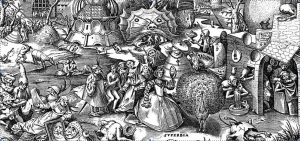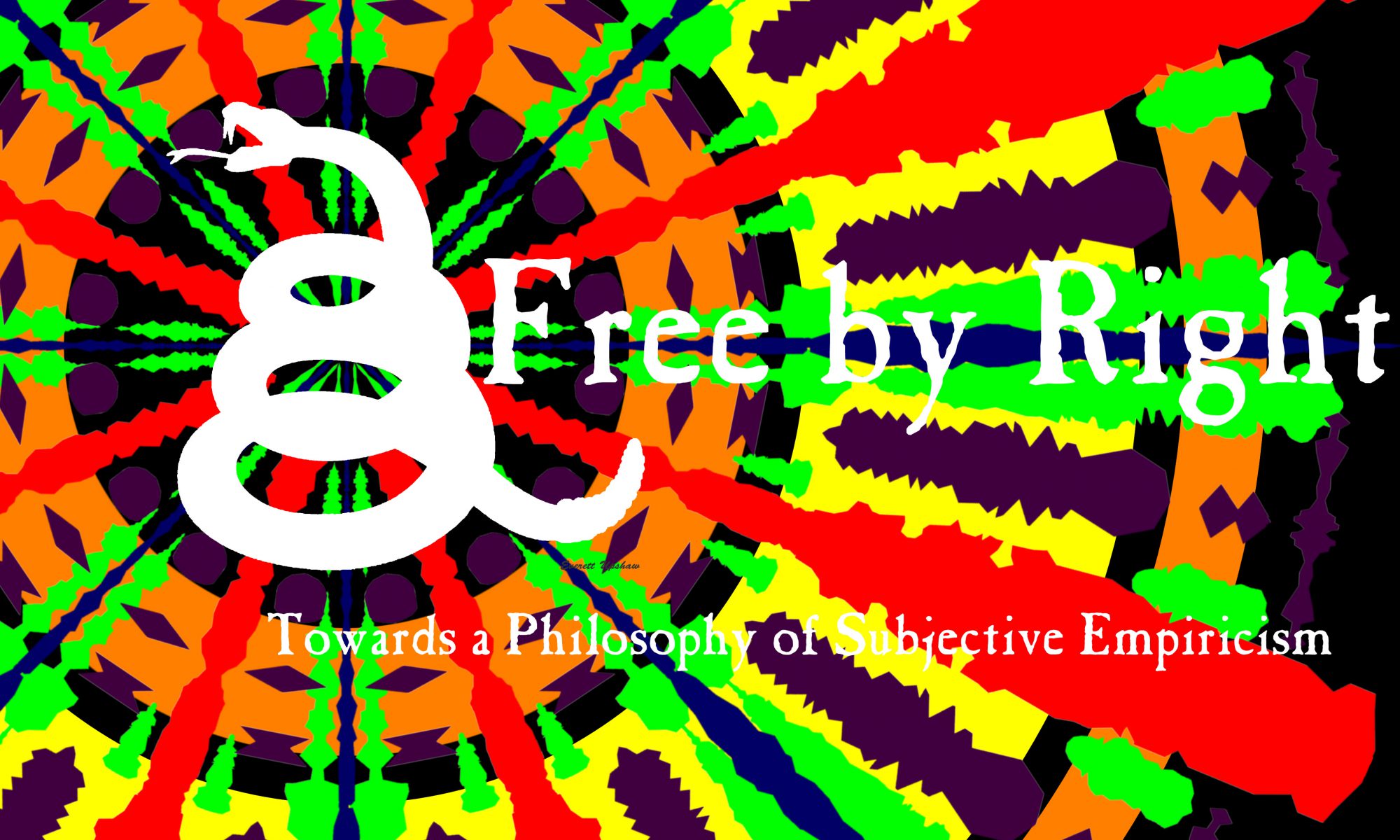The State, and more broadly even civil society through its prejudices and lack of self-awareness or of respect for the freedom of others, may encroach upon and degenerate liberty in myriad ways against which citizens must always be vigilant. In this regard, any category of force is a tool of oppression and by its nature, inherently susceptible to evil. Probably most or all of these methods have been around in some form throughout human history, but unfortunately technological advances create perils and risks as well as opportunities and benefits in terms of ever-more-sophisticated and effective methods of control, even as they offer us similarly advancing methods of resistance and liberty. It is up to us as citizens to have the wisdom to resist the sophistication of evil and instead empower liberty with technological advances. It is up to us as citizens to out-think and out-smart the slavers, to keep up with their insidious tools of manipulation and oppression. It is up to us as citizens to think for ourselves, feel for ourselves, act for ourselves, live for liberty, live for love, live for the truth. It is up to us to be, and prove ourselves, citizens not subjects.
In particular, with the rapid advance of information technology, there is a challenge to all of us at this time to be alert to and think critically about the ways in which the improving technology of knowledge may be used not only to enhance well-established and long-familiar methods of oppression, and to conceal and obscure them from us. Secrecy may be the most powerful tool of oppression, because it is so hard to resist what one is unaware of, or cannot attribute to a source. Without knowing what a problem is, or its source, we are handicapped, or even paralyzed, in our efforts to resist, fight, learn about, and overcome them.
The citizen’s great disadvantage in this struggle is that the citizen is not focused on trying to control, manipulate, destroy, or oppress others. The citizen researches and conceives for the betterment of the spirit, of the soul, of the world, of humanity, of loved ones, of everything. It is, instead, the slaver or oppressor who obsesses and fantasizes about how to serve their own purposes, whether consciously recognized or not, who spends hours and months and wastes a lifetime and a soul on trying to manipulate and control. Citizens are therefore likely to be incredulous of what is done or intended for technology by the petty and mean, and slow to believe it. We are indeed lucky in the US to have the opportunity to have observed many forms of oppression in their more-virulent forms, at a distance, for much of the past 50 years; and that is an advantage we must seize upon to protect ourselves. The safest course is to resist the creation of centers of power, and it is our right to do so.
Here, as in other areas, everyone should ask themselves:
- If you wouldn’t want your neighbor to have such power or knowledge over you by illegally surveilling you, why would it ever be okay to give a gigantic corporation with immense wealth and power, and which could easily be and probably has been, infiltrated by foreign governments to have it?
- if actions are so harmful or wicked that we would consider banning private actors from undertaking them, why on Earth would we suffer our government to engage in them?
For consideration, a listing of loose associations of related principles, extreme forms and examples historically, analogies to experiences already known within the US, and brief statements trying to get down on paper sources of concern related to the age of Big Data and channeled electronic communications, and how they may relate to historical experiences:

- Intimidation—Knowledge is power and power is intimidating. I am amazed at the willful naïveté, and indeed hubris, in the statement “I have nothing to hide,” or “People who have nothing to hide, have nothing to worry about from surveillance.” I am flat-out stunned when I hear attorneys or law-enforcement officials say something like this. Every citizen (and certainly any self-respecting attorney) should and must be aware, at the core, that there is a problem with the mere fact of the government being capable of listening to or observing privileged communications between a criminal defendant and his or her legal counsel. Surely it doesn’t take great imagination or understanding to recognize the core problem here applies much more broadly—first, perhaps, to people not yet arrested or charged with crimes who are trying to ensure they comply with the law by asking about their current conduct; second, to the activities and communications of attorneys and their agents in representing criminal defendants or indeed citizens concerned they need legal advice on whether something they are doing or did, complies with the law. Only a person with the greatest pride and lack of personal awareness can fail to recognize there is something or someone in their life they care about that could be threatened with the right information—particularly in a society, like ours, with literally thousands of inconsistent, ambiguous, and overlapping criminal and quasi-criminal prohibitions covering nearly every aspect of our lives. The bread and butter of criminal prosecutions are informants whose technical offenses against the law even the police and prosecutors don’t really care about, but knowledge of which can be used to leverage them into providing testimony against others. Private actors without color of government authority can also use information as leverage; historically this is associated with crimes such as blackmail and extortion, particularly by organized criminal organizations such as triads, the mafia, or spy networks to manipulate and control others.
- Concealment/Isolation—Denial is a powerful form of avoidance of one’s moral obligations and indeed, righteous indignation as humans with an inherent urge to be citizens. Perhaps the easiest way to corrupt and seduce people with good instincts is to help them pretend there is nothing to object to by keeping the details, or indeed the broad outlines, of government actions invisible. Includes censorship, security clearances, detention facilities, and exile in all their forms; the Nacht-und-Nebel-Erlass secret order (“Night and Fog Decree”) of 7 December 1941; probably concentration camps in all forms and locations, but notably the NKVD special or “silence” camps in occupied Germany (“Schweigelager”); detainment in Guantanamo Bay and US government “black sites.” The Stasi’s very motive in developing Zersetzung and the FBI’s in Cointelpro were to conceal actions by removing them from commonly-recognized statistics like incarcerations for political reasons. More recently, the US government’s fury at Edward Snowden was based on his revelation of what everyone already knew, or should have known, the NSA was already doing; but which to our country’s shame, so many Americans were willing to ignore or overlook before the details were thrust into our faces.


